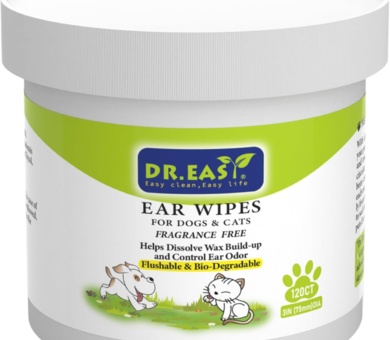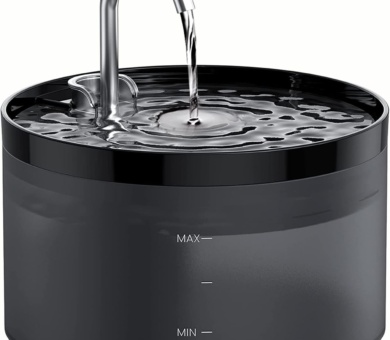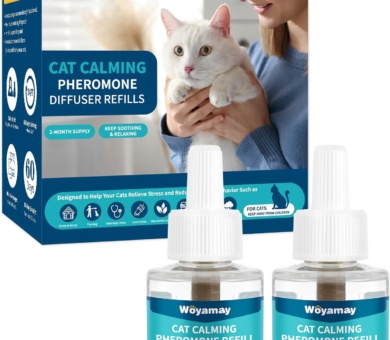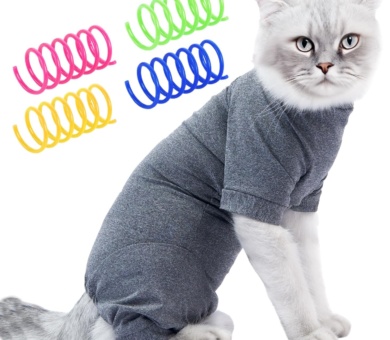The Ultimate 2025 Cat Supplement Roundup: Vets’ Top Picks and Expert Advice
As cat owners increasingly prioritize their pets’ health and longevity, the demand for high-quality supplements has surged. However, navigating the crowded market can be overwhelming. To cut through the noise, we’ve collaborated with leading veterinarians to curate the 2025 Cat Supplement Roundup—a trusted guide rooted in expert insights and scientific rigor.
Why Supplements Matter: A Vet’s Perspective
Modern feline diets, even when balanced, may lack specific nutrients due to lifestyle, age, or health conditions. Dr. Sarah Collins, DVM, explains, “Supplements aren’t a replacement for a nutritious diet, but they can address gaps—supporting joint mobility, digestive health, or immune function, especially in aging or stressed cats.” Common needs include:
- Joint Health: Glucosamine and omega-3s for arthritis prevention.
- Skin & Coat: Biotin and omega fatty acids to reduce shedding and irritation.
- Digestive Support: Probiotics for gut microbiome balance.
- Immune Boosters: Antioxidants like vitamin E and taurine.
How Vets Evaluate Supplements: Key Criteria
Before recommending a product, veterinarians prioritize:
- Science-Backed Ingredients: Clinically proven dosages and peer-reviewed research.
- Quality Assurance: Brands adhering to AAFCO guidelines and third-party testing (e.g., NSF certification).
- Transparency: Clear labeling with no artificial additives or fillers.
- Palatability: Formats cats will actually eat (chews, liquids, powders).
“Avoid ‘miracle cure’ claims,” warns Dr. Michael Torres, a veterinary nutritionist. “Legitimate supplements focus on specific, measurable benefits.”
2025’s Top Vet-Recommended Cat Supplements
1. Joint Health: FlexiPaws Pro+
- Key Ingredients: Green-lipped mussel extract, glucosamine, and curcumin.
- Why Vets Love It: A 2024 study in Journal of Feline Medicine showed a 40% improvement in mobility for arthritic cats.
- Expert Tip: Dr. Collins recommends starting early: “Proactive use in middle-aged cats can delay joint degeneration.”
2. Digestive Aid: GutGuardian Probiotic Bites
- Key Ingredients: 5 billion CFU/g of Bifidobacterium animalis and pumpkin fiber.
- Why Vets Love It: Supports diarrhea relief and nutrient absorption. Vet-approved for post-antibiotic recovery.
3. Skin & Coat: OmegaCoat Liquid
- Key Ingredients: Wild-caught salmon oil (rich in EPA/DHA) and vitamin E.
- Why Vets Love It: Reduces inflammation and dander within 4–6 weeks. “I’ve seen remarkable turnarounds in allergic cats,” says Dr. Emily Shaw.
4. Immune Support: ImmunoKitty Mushroom Blend
- Key Ingredients: Turkey tail, reishi, and shiitake extracts.
- Why Vets Love It: Beta-glucans enhance immune response; ideal for senior or FIV-positive cats.
5. Multivitamin: VitaCat Complete Chews
- Key Ingredients: Taurine, lysine, and 12 essential vitamins.
- Why Vets Love It: Tailored for indoor cats lacking dietary variety.
Expert Advice: Maximizing Supplement Success
- Consult Your Vet First: “Always rule out underlying health issues before supplementing,” advises Dr. Torres.
- Start Slow: Introduce one supplement at a time to monitor reactions.
- Consistency is Key: Most supplements take 4–8 weeks to show effects.
- Avoid Over-Supplementing: Excess vitamins (e.g., vitamin D) can be toxic.
FAQ: What Cat Owners Ask Vets
Q: Are supplements safe for all cats?
A: Generally, yes—but always consult your vet, especially for cats on medication or with chronic conditions.
Q: How do I choose between chews, powders, or liquids?
A: Match your cat’s preferences. Liquids can be mixed into food; chews work for treat-motivated cats.
Q: Can supplements replace prescriptions?
A: No. They’re complementary, not substitutes for medical treatment.
Final Thoughts
The right supplement can elevate your cat’s quality of life, but expert guidance is non-negotiable. In 2025, innovations in feline nutrition continue to prioritize safety and efficacy—so partner with your vet to tailor choices to your cat’s unique needs.
Always prioritize products with the National Animal Supplement Council (NASC) seal and remember: when in doubt, ask the professionals.
About the Author: This article was crafted with insights from veterinary professionals and reviewed by Dr. Sarah Collins, DVM, to ensure accuracy. Always consult your veterinarian before starting new supplements.









